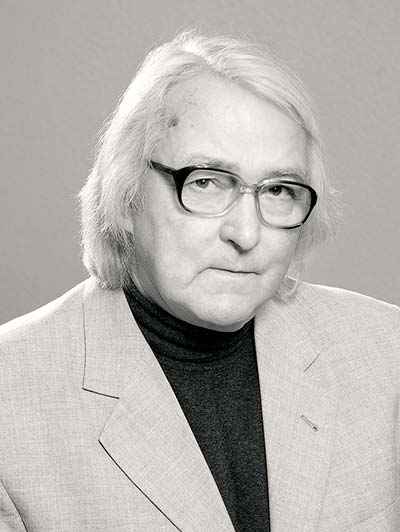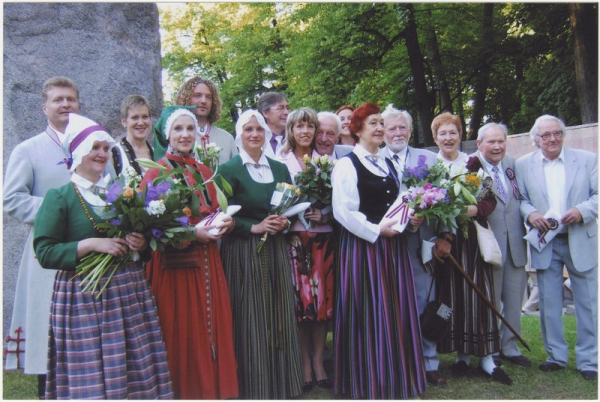Ojārs Grasis
1935–2018
Dancer-soloist, choreographer, educator
Born 26 January 1935 in Rīga. He studied at Asari Elementary School, then at the Jūrmala Pumpuri Secondary School.
His interest in dance arose when he danced in the Pumpuri School dance group with educator Osvalds Štrauss (1949–1951). Obtained his vocational education at Rīga Technical University (1951–1954), in parallel dancing at the Construction Workers’ Club under Silvija Budo (1952–1954). Between 1958 and 1976, he improved his professional skills with dance choreographers A. Bērziņš and Irēna Strode, but studied stage direction with Pēteris Lūcis and Marga Tetere. Calls himself an autodidact because he has acquired all the skills he needs in his profession through self-study. As the choreographer admits, his wife, ballet dancer Zigrīda Grase, also contributed greatly to his professional development.
In terms of his creative life, Grasis has always been extensively involved and occupied. He was a prominent soloist with the Sakta (Brooch) State song and dance ensemble (1958–1963), a soloist with the Latvian SSR State Philharmonic (1963–1978), and for four years also a dance soloist with the Rīga estrādes (Light Music) Orchestra. From 1972, started working with dance groups, having been an assistant to Grase, artistic director of the Ritenītis (Little Wheel) folk-dance ensemble, and later its director for 30 years. From 1981 to 1990, he led the Engure seniors’ and middle-generation dance groups, and in 1988 started working with the Baltābele (White Apple tree) seniors’ dance group at the Berģi Cultural Centre in Garkalne Parish, but since 2000, has been the director of the Ogrēnietis seniors’ dance group at the Ogre Cultural Centre.
Throughout his life, the artist has taken on the challenge of ambitious events – Grasis was the choreographer of the Latvian SSR dance programme for the opening ceremony of the Moscow Olympic Games (1980), co-choreographer and arena choreographer for the Solis laikā (Step in Time, 1998) grand dance performance. In 2001, participated in the production of the Rīga-800 grand dance performance Viena saule, viena zeme (One Sun, One Earth), as well as being artistic director of many concerts by All-Latvian middle-generation dance groups (1994, 1996, 1999 and 2001) and a Chief choreographer at Latvian Seniors’ Dance festivals (1998, 1999, 2002, 2003, 2004).
Has composed more than 30 dances, including Noras mālā (Clay Glade), the Meitu polka (Girls’ Polka) dance suite, Puišu polka (Lads’ polka), Polka ar mainīšanos (Changing Polka), Pie cepures man zieds (A Flower on my Hat), Pagriezies, saulīt (Turn, Sun), Pie Dzintara jūras (By the Amber Sea), Pļāpas (Gossip) are still beloved and danced by dancers, also won awards in numerous dance new competitions. “I am delighted to see the people I work with develop my dance idea. If I see that they feel the idea, that they are living in it”. (Ojārs Grasis. Ogresnovads.lv. 30 March 2011)
A Chief choreographer at the 10th and 12th Dance Celebrations Honorary Chief choreographer at the 13th-16th Dance Celebrations, Chief choreographer for Rīga, Jēkabpils and Ogre dance groups (1994–2002), as well as at numerous dance festivals and major concerts.
Awarded the Medal of Honour, Order of the Three Stars (2005).


